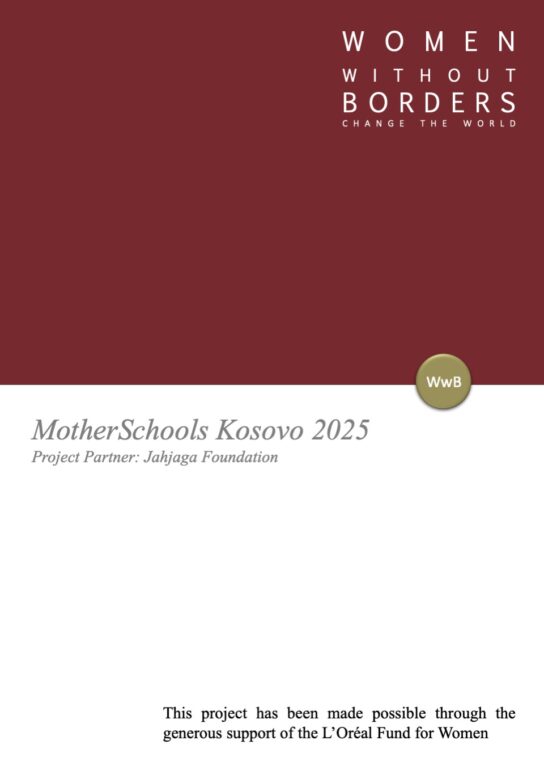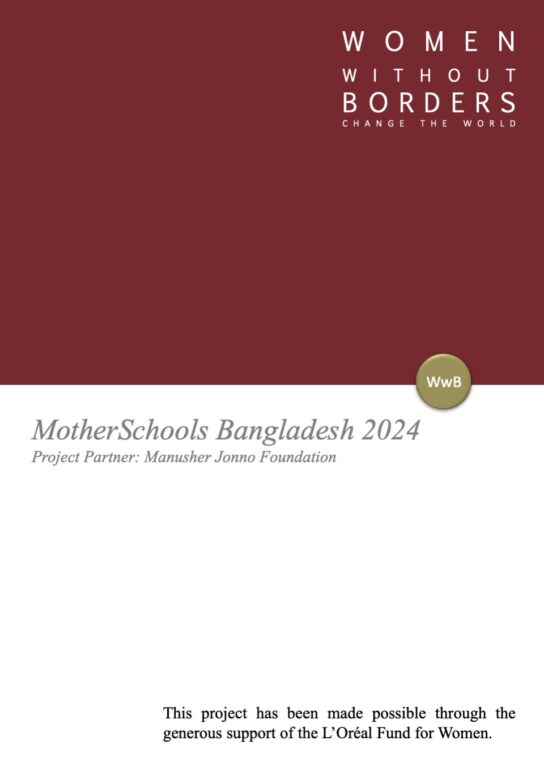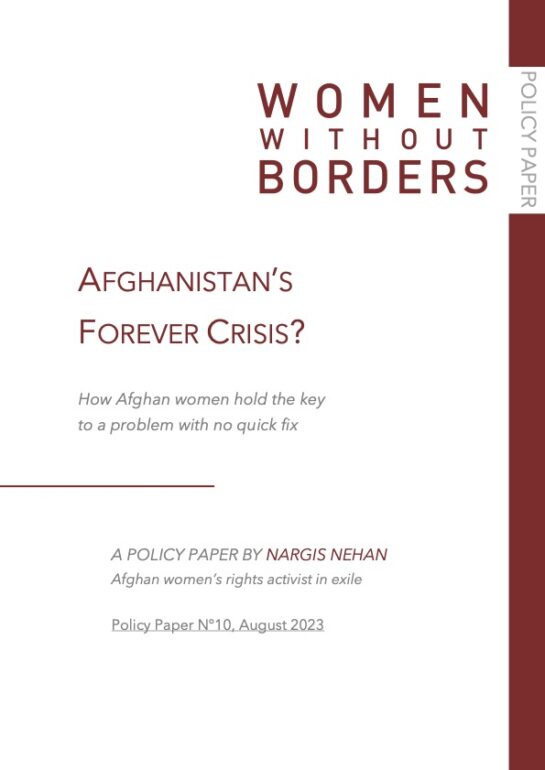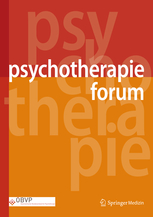Between 2021-2024, WwB implemented its ‘MotherSchools: Parenting for Peace’ Model in Kosovo with its local partner Jahjaga Foundation. The programme in Kosovo, which is part of a multi-country project supported by the L’Oréal Fund for Women, saw seven groups convene over the course of three years across three municipalities: Fushë Kosovë, Klina, and Pristina. This impact report offers an overview of the MotherSchools project in Kosovo, introduces WwB’s impact model, and presents the impact findings based on quantitative and qualitative data from the perspectives of project stakeholders, including Participants, Teachers, and Notetakers.
In South-East Europe, the Republic of Kosovo is particularly exposed to violence and extremism. Following the dismantling of Yugoslavia in the 1990s and its recently gained independence from Serbia in 2008, the country remains in fragile post-conflict settings with partial diplomatic recognition, numerous internally displaced persons, and a struggling economy characterised by unemployment and illegal underground activities. In the second poorest country in Europe, the coexistence of various ethnicities–including Albanians, Bosnians, Serbs, and Turks–is challenging. Given the precarious context in the Balkans following the violent events in the 1990s, Kosovo became one of the primary sources of foreign fighters supporting the revolutions in Syria and Iraq. Between 2012 and 2016, around 400 Kosovars – including women and children – were reported to have joined terrorist groups in these regions. While recruitment seems to have ceased over the last few years in Kosovo, the potential for violence has been catalysed within the country, resulting in excess levels on the domestic front. This is particularly exacerbated by the aforementioned socio-economic difficulties that greatly affect young people, 60% of whom are unemployed and looking for purpose in their lives. Many cases of domestic violence continue to go unreported due to stigma, fear of retaliation, and lack of institutional support.
Even though the status of women has seen gradual improvement through legislative reforms and the efforts of civil society organisations, harmful traditional practices and deeply entrenched patriarchal norms continue to limit the full realisation of women’s rights in Kosovo. Women are often limited to being wives and devoted mothers. As a result, they are often isolated at home and unable to develop an independent identity beyond their role as wife and mother. Despite formal gender equality in law, women in Kosovo are underrepresented in decision-making roles and continue to encounter cultural and institutional barriers.
“I don’t think that institutions in Kosovo are really ready to accept the fact that men kill women just because they are women. They still try to find other excuses on top of that.”
– MotherSchools Notetaker, Kosovo 2024
“Most of the women here in Kosovo are unemployed. Therefore, their position is not good in the family. They depend on their husbands, their in-laws. Most of the women do not have a voice in their families. Their opinion does not matter. They cannot decide for themselves and their children.”
– MotherSchools Teacher, Kosovo 2021
Executive Summary: Participant Perspectives
Below is an overview of some of the key findings from the perspective of the Participants who went through the programme, receiving approximately 40 hours of training in PVE (preventing violent extremism), childhood development, security, peacebuilding, and communications.
Confidence | Participants experienced a transformative increase in confidence, enabling them to speak up more freely, trust their instincts, and take pride in their abilities. This growing self-belief empowered them to reclaim their voices and feel respected by themselves and others.
Competence in Parenting | Participants began to reflect on their strict child-rearing approaches, realising that calm, trusting, and open conversations help children feel safer and more willing to share. Their communication shifted from control and fear toward dialogue and understanding.
Competence in Preventing Drivers to Violence and Extremism | Participants strengthened their communication skills, gained a clearer understanding of how to safeguard their children from harmful influences, and began to see themselves as active protectors at home and beyond.
Applying the Knowledge | Participants reported gaining confidence and practical tools to communicate more effectively with their children and provide stronger support. Applying this knowledge in daily life and sharing it with others left them feeling prepared and empowered.
Breaking the Silence | Participants reported gaining confidence and recognising the importance of open conversations with those around them. This transformation enabled them to share their thoughts more freely and take part in deeper, more meaningful exchanges with their children.
Leadership | Participants expanded their networks and grew more confident in voicing their perspectives, particularly when it came to sharing their learnings and supporting one another.
Trust | Participants found a strong group bond in a space of kindness and support. Inspired by this trust, they expressed a desire to carry it forward into their communities, sharing their learnings with family members and acquaintances.
Norms | Through discussions with other mothers in the sessions, Participants came to see that solutions to their concerns and problems do exist, and recognised the value of sharing experiences and respecting different opinions.
Networks | Participants found a network where they could voice concerns and receive advice from other mothers with similar experiences. They also expressed a desire to extend the programme’s impact to women in their families and communities who could not take part.
To read more on the impact of MotherSchools Kosovo 2021-2024, read the full report.





